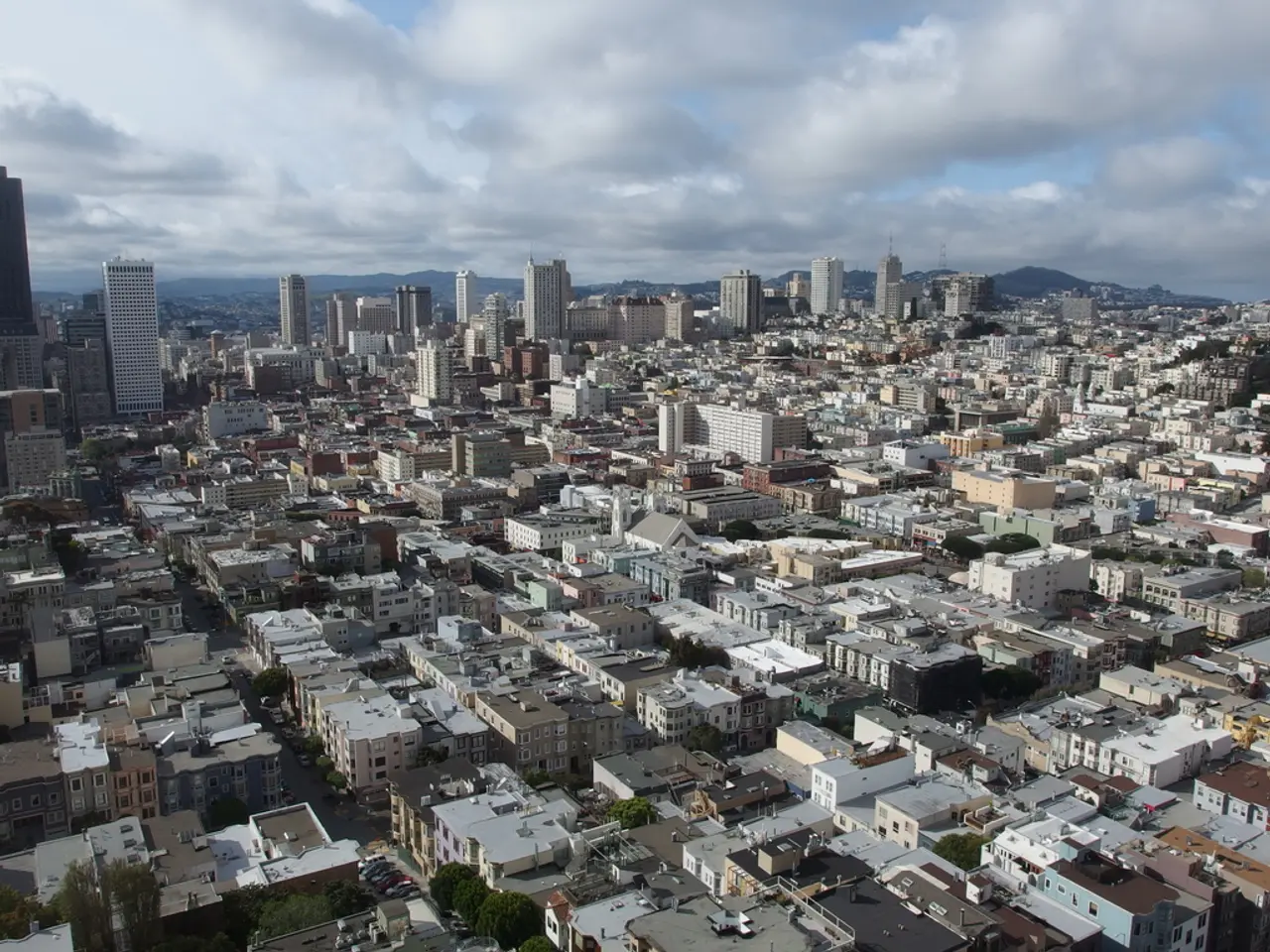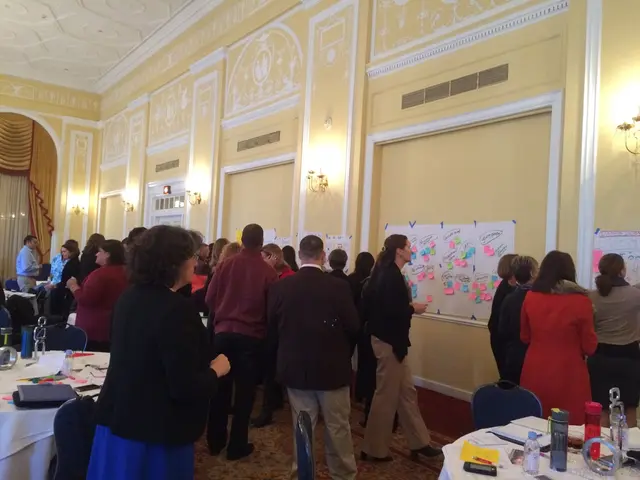Contentment Levels Among Residents of Urban Areas
In the prosperous state of Baden-Württemberg, Karlsruhe stands out for its strong economy, high-tech industries, and status as a hub for research and innovation, particularly as home to the Karlsruhe Institute of Technology. Despite these advantages, a recent survey has revealed that Karlsruhe residents report lower life satisfaction compared to other major German cities.
While Karlsruhe's transformation into a "real-world laboratory" for sustainable urban development aims to improve sustainability, ongoing challenges in mobility, health, air quality, and land use may create disruption, uncertainty, or dissatisfaction among residents. Furthermore, the focus on sustainable urban development could inadvertently shift emphasis away from immediate quality-of-life concerns, such as green spaces, noise pollution, or public services, which are known to affect subjective well-being.
Economic prosperity does not always translate directly to happiness. Social cohesion, community engagement, and a sense of belonging are critical to life satisfaction. If Karlsruhe’s rapid economic development has outpaced the growth of social infrastructure, residents may feel a lack of connection or support. The city's demographic composition—including a high proportion of students, researchers, and highly skilled workers—might create a transient population less invested in long-term community building, which can affect reported life satisfaction.
Other major German cities may offer a richer mix of cultural amenities, nightlife, or recreational opportunities that contribute to higher subjective well-being. Cities with a stronger tradition of social policies, community services, or historical identity (e.g., Munich, Hamburg) might foster a greater sense of pride and satisfaction among residents.
Reported life satisfaction can be influenced by the methodologies used in surveys, including sample selection and weighting. If Karlsruhe’s surveys capture a broader or different demographic than other cities, comparisons may not be fully equivalent. Cultural expectations in Baden-Württemberg might also play a role: residents in this region could have higher standards or different priorities when assessing their own life satisfaction compared to those in other parts of Germany.
Existing research does not provide direct empirical evidence specifically addressing life satisfaction in Karlsruhe versus other German cities. This discussion is therefore inferential, based on general urban studies and the unique characteristics of Karlsruhe as highlighted in available sources.
For further information, please contact Christoph Müller at c.mueller@ourwebsite.
[1] Source: Happiness Atlas of the South German Class Lottery, created by pollsters from the Allensbach Institute in Constance. [2] Source: Various news articles and reports.
In light of the city's progressive approach to sustainable urban development, residents' expressed dissatisfaction may stem from concerns about quality-of-life aspects such as green spaces, noise pollution, or public services, which are vital for subjective well-being. Although Karlsruhe's strong economy and emphasis on innovation are evident, the rapid growth of its highly-skilled, transient population could potentially overshadow the development of social infrastructure and community building, impacting residents' sense of belonging and connection. Meanwhile, other major German cities might excel in providing an array of cultural amenities, nightlife, or recreational opportunities that contribute to residents' reported higher life satisfaction compared to Karlsruhe.




